Study In China - Tumblr Posts
Chinese Measurement Units Guide
At first glance the Chinese clothes sizes make little sense (they still make not that much sense even at the 15th glance as well to be honest). And the fruit and veggie prices are also no odder.
Then I realized that China has its own local measurement units, so here are some unique measurement units you should look out for plus an odd one out.
1. Weight
Kilograms are used (confirmed this during my medical exam, which is a story in itself), but for things like fruits, veggies etc. 公斤 is used, which is basically kilos divided by 2.
一斤 (yī jīn)= 500g
两斤 (liǎng jīn)= 1kg*
*Even though 斤 is translated to as pounds sometimes, it's actually kilos.
This is also used for clothing sizes (on taobao at least), so if you want to get an accurateish estimate you need to convert your weight to kilos, multiple by 2 and then select a size that fits within the range.
For example: if you weight 70 kg, you then multiple that by 2 = 140斤. Clothes will usually have size ranges e.g. 120-145斤, so that could fit into the L (Large) category.
Note: Sizes vary across stores, so an L in one shop can be an XL in another store or an 2XL in a different store so be ready to contact the seller asking for more specific measurements if not too sure.
2. Length
Usually kilometres and metres are used, but there's also a local system.
0.5 km - 1里 - lǐ
1 km - 2里 - lǐ
3. Area
Same as the previous one, the western measurement units are used but there's also a local system. Not very common from what I've heard, but still pretty handy and interesting to know.
1 km² -15顷 - qǐng
4. Volume
Volume is the same as the metric system, with it's own name so no surprises here.
1 L - 1 升 - shēng
The only major issue I've had has been with the weight measurement and its conversion, but other than that there aren't many issues.
5. Contact lenses
Maybe it's a location thing, but the eye diopter thing here is slightly different.
If your prescription is -4.00, then here it'll be just -400 or just 400 without the minus if buying on Taoboa. It should be obvious (farsightedness of +4.00?? with people studying and working that much??), but it threw me off the first time I had to get my contacts here.
They range from 0 to -8.00 but with one value for the entire package, so if you have significantly different diopters in each eye e.g. -2.00 in your right and -3.00 in your left, then you may have to buy 2 packets, 1 for each eye.
Happy 2024!
Hoping that this year is filled with health, happiness and harmony❣️❣️❣️




Life in China: Observations #3
Vitamins/supplements are necessary Especially Calcium and Vit D. Dairy isn't really that big of a thing here (milk boba tea does not count!!), and with cheese being a mythical creature Calcium and vit D are quite useful.
The city never sleeps The big cities at least are always loud and active.
Sugary drinks Sugar is everywhere. From milk-tea to coffee, everything is pretty sweet. Even some of the bread is sweet as I discovered when eating a sandwich.
Interesting flavours Cucumber-flavoured crisps to cheese-flavoured coffee. Whatever flavour combination you deem too outlandish to be true, chances are its real.
Face masks People wear masks for a few main reasons; Fashion, against the cold, against illness and against the air pollution
The aforementioned air pollution It's a thing everywhere. The AQI index thing does not play about. The cold months are the worst, so you'll see people wearing masks very often.
Taobao I mentioned Taobao previously, but seriously. You can buy anything on Taobao. Literally. Clothes, makeup, household items, vitamins. I even saw some people selling rabbits. And other animals, but you get my point.
The New Year isn't that much of a thing here. It's celebrated but not to the extent that the Lunar New Year is celebrated from what I've heard.
The transport/travel system is pretty well connected. Getting around China has little difficulties. The only issue is getting out or into China especially if you're from a european country that doesn't have that many international flights.
Life in China #10
Today we had our end-of-semester closing ceremony & took some cute photos together!
It's only been 4.5 ish months of studying, and yet I'll miss my classmates and the unforgettable time we had together ❣️
This is the end of this chapter, but I'm excited to see what the Spring semester brings us💐.
Life in China : The Zoo 🐯🐠🦩•°•°•°•°°~




Types of dumplings in China
Prior to my arrival to China, I only knew about wonton and jiaozi, which I assumed to similar to pelmeni.
As it turned out, there is no end to the variations of dumplings, so here are some of the most common dumplings in China that I've come across so far!
饺子 - jiǎozi These are thin veggie or meat filled dumplings, and they can be steamed, boiled or fried but I've only tried the steamed variety so far which is pretty tasty. They somewhat resemble pelmeni, but the tast is noticeably different.
馄饨 - húntún (wonton) These dumplings are similar to jiǎozi but thinner and they're usually eaten in soup.
生煎包 - shēngjiānbāo These are slightly crispy, fried dumplings usually with a pork-filling。

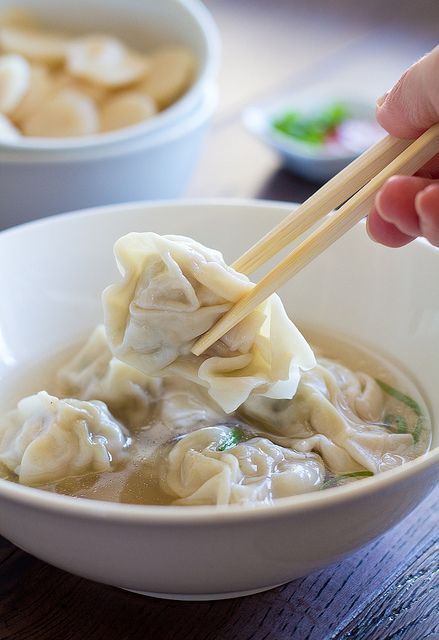

锅贴 - guōtiē These dumplings are the crispy-ish type, deep-fried and steamed with various fillings like veggies and meat.
水饺 - shuǐjiǎo They're quite similar to the 锅贴, but these dumplings are boiled (note the 水) without the frying.
小笼包 - xiǎolóngbāo These are steamed buns, usually filled pork but they can also have other fillings like veggies and seafood.
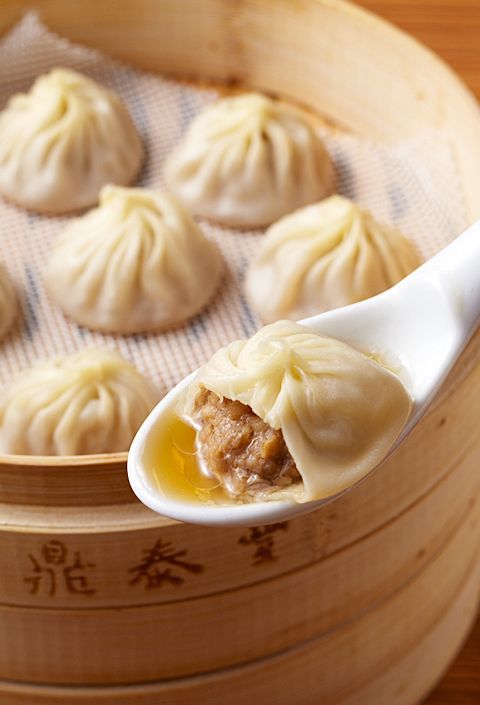


Honourary mentions: These aren't dumplings, but they're adjacent enough imo.
肉包子 - ròubāozi These are biggish steamed buns with a meat filling. I have these for breakfast and they're really good.
菜包子 - càibāozi Same as the ròubāozi, but with veggies and also pretty tasty.


If I missed any, let me know which ones as I'm always looking to try new things!
The right mindset for an exchange year abroad
There's no singular correct mindset or way of thinking when it comes to planning and preparing for a year abroad. However, there are some aspects that can make life a little easier so here's what you should consider doing.
Accepting being an obvious foreigner If you're doing a year in a country such as China, then be prepared to be the odd person. Yes, chances are you will get stared at. You may hear "waiguoren"!, especially if you got travelling outside of the more international areas. Yes, you will sometimes feel like an outsider, like you'll never fully integrate. And that's ok. A reality that I had to accept is that whilst I may be welcome to stay here, I will remain an obvious visitor here.
Trying new things An obvious one, but don't just stay in your dorm watching tv-shows all the time. Get out and explore the city. Even if you decide to talk a stroll in the local park, that also counts. Obviously there wil be days when you need to recharge and spend some time by yourself, but going out and leaving your bubble can be the greatest kindness that you show yourself.
Break out of your shell Similar to point #2, but this one can be tricky. Trying new things e.g. trying a new dish at your school canteen vs going to a local restaurant by yourself are a tad different. This one takes time, and even the most outgoing person can struggle with this in a foreign place. Baby steps are the way to go here. If you feel anxious about going to the restaurant, try a cafe in a student/university area first. You can order your drink and if you feel comfortable enough, you can find a spot there and do some reading/studying. In time, you'll feel confident enough to try other places that you may have previously found intimidating. Breaking out of your shell takes time, so don't push yourself too much.
The local customs will endure long after you have left My professors back at my home uni always said "the local way trumps your way", and they were proven right time after time. Certain things are done a certain way, and whether you like it or not they will continue. The best thing to do, is to research in advance and try to adapt to them. Who knows, maybe in time they'll grow on you (aka me almost forgetting how to use a fork after using chopsticks for so long).
It's usually curiosity, not malice Sometimes you will get stared at, or you may be asked odd questions that in your culture would seem bizzare or perhaps a tad offensive e.g. how much do you/your parents earn? are you married? do you have children? Usually it's asked out of curiosity, rather than to cause offense or malice so try to keep that in mind.
Overcome the feeling of temporariness This is an odd one, but the fact that I'm here in China only for a while sometimes gets to me. Like why bother decorating my dorm room if I'll leave in the end? Why buy an extra blanket if I'll have to donate it if it doesn't fit into my suitcase? Forget this mentality. Yes, you're here for only a year, or maybe even half a year. But. This doesn't mean that you should neglect yourself and your living space. If its affordable and if it'll make your life much more easier and comfortable, then get that thing! If you don't have space in your suitcase, then either ship it back home, sell it, give it to a friend or donate it.
Don't forget about your life back home Keep in touch with your friends and family. You don't necessarily need to call them everyday, but do sent a message every once in a while. A simple "good morning!" text can be enough to reassure your parent(s) that everything's ok. Make sure to keep in touch with your home uni academic advisors, and to make sure that you're meeting all the necessary requirements. Mark the application deadline for those summer internships in your calendar, and don't forget to send your auntie that happy birthday message. You have your current life, but please don't neglect your relationships with your loved ones back at home.
Chinese Desserts
There's quite a large variety of treats and desserts in China (more than you can imagine), so here are some of the most common ones!
Almond jelly/tofu - 杏仁豆腐 - xìngréndòufu Despite the name, almond jelly doesn't actually have almonds in it. Almond jelly is made from gelatin and almond milk, although some recepies use dairy milk instead.
Glutinous rice balls - 汤圆 - tāngyuán These rice balls are made from glutinous rice balls with a sweet filling, such as red bean paste (a pretty popular filling in desserts, I've been fooled more than once when purchasing what I assumed to be a chocolate filled pastry).
Red bean buns - 豆沙包 - dòushābāo One of my favorite desserts so far. These are steamed buns with a sweet red bean paste filling that I'd definitely recommend.
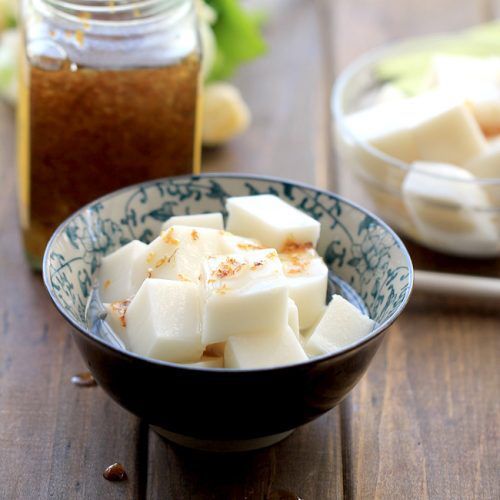


Egg custard bun - 流沙包 - liúshābāo A sweet and savory bun, with a lava-like egg yolk filling. A pretty interesting dessert, as it's both sweet and savory.
Pumpkin cake - 南瓜饼 - nánguābǐng I haven't tried this yet, but it definitely looks good. A fried and crunchy cake with a sweet filling such as red bean paste.
Eight treasure rice pudding - 八宝饭 -bābǎofàn This is a pretty popular dessert, especially during the Lunar New Year. It gets this name becase of the toppings, which are eight or more different types of dried fruits and nuts arranged on top of the sweet rice, with (once again) red bean paste.


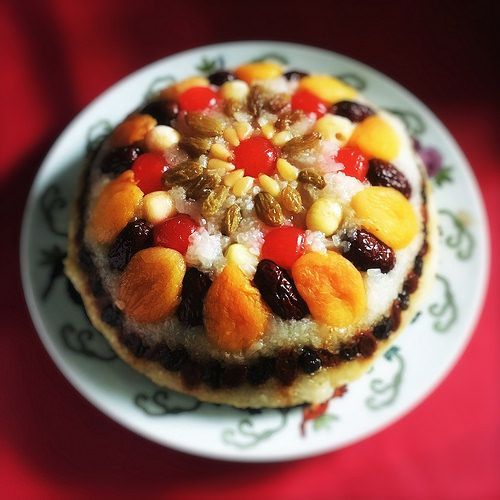
Hawthorn stick/ Candied Haws/ Sugar coated haws/ Bingtanghulu - 冰糖葫芦 - bīngtánghúlu This treat has quite a few translations and you may have probably already seen it. This is basically candied fruit covered with a sweet, crunchy and sugary syrup. Traditionally, Hawthorn is used but other fruits such as grapes, strawberries and oranges are also popular options.
Sachima - 沙琪玛 - shāqímǎ I haven't tried this snack yet, but it looks quite fascinating. Sachima is made from fried batter stuck together with a sugary syrup, with an interesting texture.
Sesame balls - 芝麻球 - zhīmaqiú Similar to the rice glutinous balls, this treat is also made from glutinous rice flour with varying fillings including lotus seeds, mung bean and red beans, and sesame seeds.

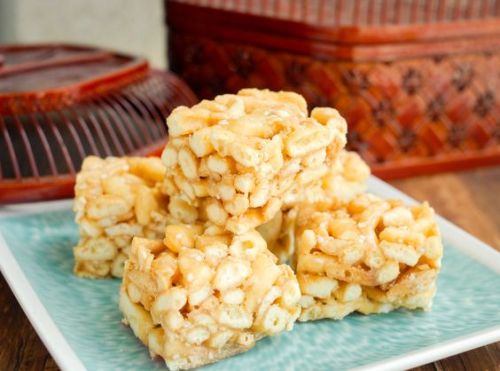
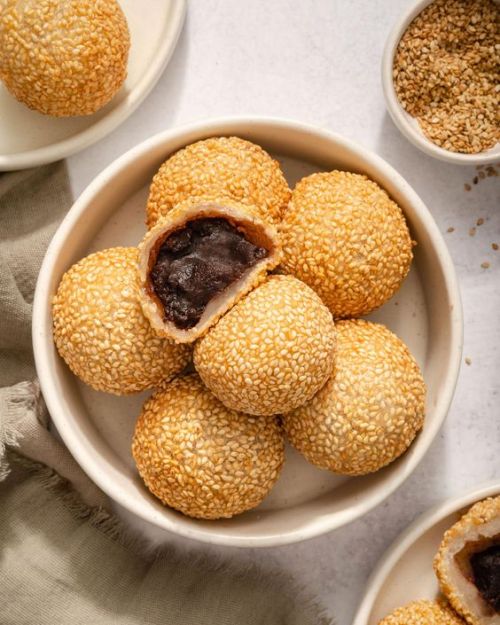
Water chestnut cake A sweet pan-fried cake made from chinese water chestnut, with a unique semi-transparent appearance.
Wintermelon puff/ Wife cake/ Sweetheartcake - 老婆餅 - lǎopóbǐng This cake has many names, mainly because it has several different origin stories, each more fascinating than the next. This dessert is a flaky pastry with wintermelon, almond (not red bean this time!) paste and sesame filling.
Fortune cake - 发糕 - fāgāo Not a fortune cookie! This is a spongy steamed cupcake cake commonly made for the New Lunar Year celebrations and occasionally other events. They're usually a white-ish or brown-ish color, but they're often dyed bright colors to add extra festivity.
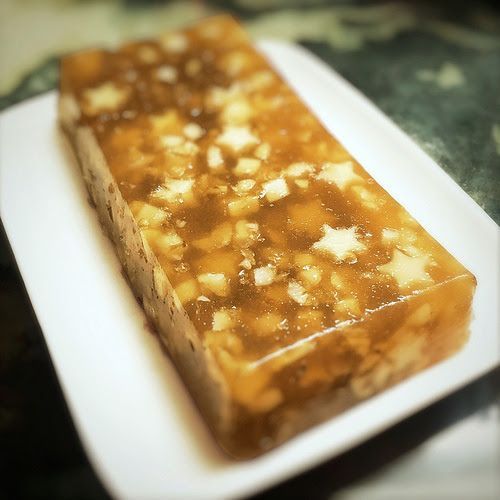
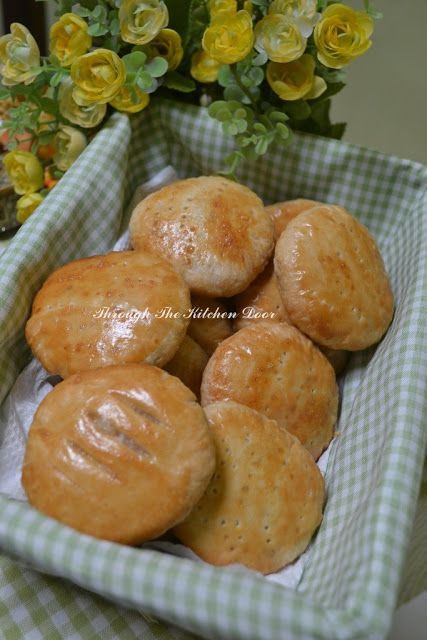
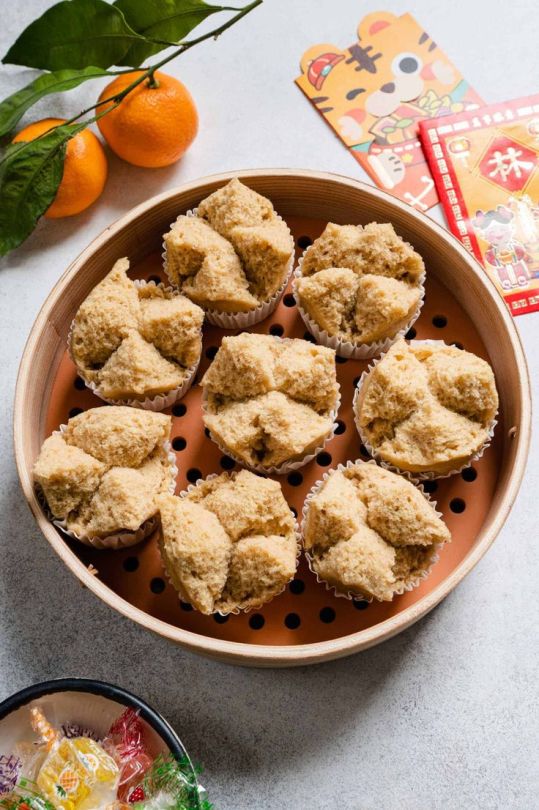
Mooncake - 月饼 - yuèbǐng This is a pretty well-known dessert, commonly prepared for the Mid-Autumn Festival. Mooncakes are smallish steamd/fried (depends on the region) cakes with a sweet filling that can also sometimes have an egg yolk inside.
Osmanthus cake - 桂花糕 - guìhuāgāo This is a unique traditional pastry made from glutinous rice flour, honey and osmanthus. This cake has a really interesting texture, as it's quite dense but also airy in a way? I'd definitely recommend trying it, as it's not super sweet and goes really well with tea.


Getting back on track after a slump
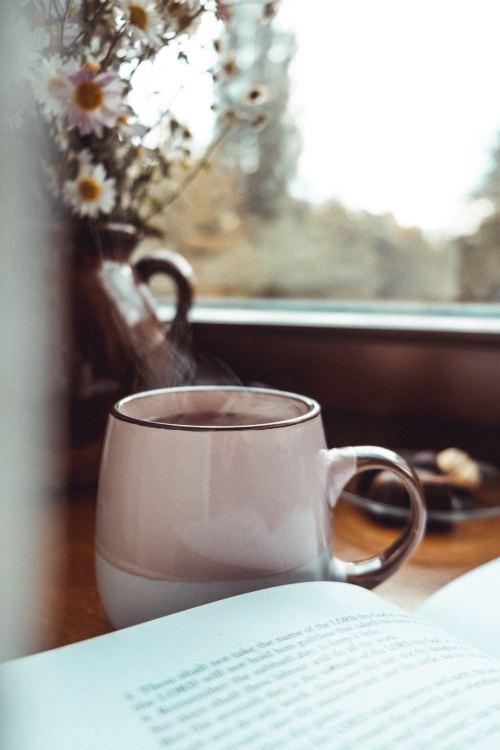

Life is non-linear as it turns out. Sometimes you're doing great and then all of a sudden you're completely thrown off and are struggling to get up.
It happens to pretty much everyone, and even though you can't really prevent a slump from happening, you can use this advice to help you get back on track
Make a list of what you have to do Sit down, make yourself some tea or coffee and just start writing what you need to do. Missed a deadline with that unfinished paper? Write it down, add a sub-bullet to ask for an extension/send an email explaining your circumstances to your professor/teacher (they're also human, chances are if you notify and explain the situation to them, they will do their best to help you).
Break down those tasks into sub-tasks. By simplifying and breaking down your tasks into smaller chunks you're not only making it easier to do them, but you're also helping yourself get rid of some anxieties or fears since that task now looks much easier and more manageable to accomplish.
Update or create a new routine. Whether your routine contributed towards this slump or not, its always good to update your routine as you grow and change. What may have worked then may not necessarily be appropriate or helpful now. We humans are creatures of change, it's only natural that we outgrow our past.
Take it slow when easing back into your routine. Going too fast can actually be counter-productive, because you should be naturally aligning yourself with it and not forcing yourself into something you're not completely ready to follow. Trying to overcompensate generally isn't a good idea, as putting extra pressure on yourself especially when you're just trying to get everything sorted may not end very well.
Write down your goals and dreams to help you get motivated. It may seem difficult and at times pointless to try and get back on track, and reminding yourself about your goals and aims can definitely encourage you to take the steps to getting back on track or starting over.
Talk to someone about what you're feeling and going through. Your school or uni have counselors and people who can help you get through this if you require help. You don't necessarily have to jump straight into it, just start with a friendly email briefly explaining the situation and go from there.
Breakfast foods in China
Since arriving in China my typical breakfast has changed quite a lot (hello baozi and mung bean paste!) so I decided to explore some common local breakfast foods eaten in China!
包子 - Bāozi (my love) These have been an almost consistent (excluding the lunar new year when the canteens and most cafes and restaurants closed) staple of my breakfast ever since I arrived in China. They come with several fillings such as veggie, pork, seafood etc. and they can cooked in different ways such as being steamed, fried etc. Here's a more in-depth post about the types of dumplings and bāo.
粥 - Porridge (zhōu) I sometimes have porridge for lunch instead and it's a really filling meal. I get the Century Egg Congee with Chicken - 皮蛋瘦肉粥 (Pídàn shòu ròu zhōu) and it's one of my all time favourite meals.
煎饼 - Egg pancake (jiānbing) Popular also as a street food, this is a thin crepe type pancake with an egg, veggie, spice, sauce and sometimes meat filling. The actual filling varies as you can customize what veggies and spice level you'd like and whether or not you want meat.



热干面 - Hot and dry noodles (règānmiàn) I honestly had no idea about this dishes existence until a while ago, probably because it's a regional dish originating from Wuhan which is kind of far away from my location. These are spicy and dried noodles which are actually eaten without a broth unlike many other noodles. They seem pretty interesting so if anyone tried them before do share your experience!
桂林米粉 - Guilin Rice noodles (guìlín mĭfĕn) This appears to be another regional dish from Guilin, Guanxi as I had no idea that this was a also a pretty popular breakfast dish. Apparently it's not the noodles but rather the broth that they're cooked in that makes them special, with the actual recepie varying across the region. Someone should do a long weekend trip vlog (pondering on this) to Guilin where they just go from store to store trying these noodles and trying to determine the differences.
葱油饼 - Scallion oil pancake (cōngyŏubĭng) A tasty but heavy-ish pancake imo. These pancakes are cooked with scallions (green onion) and pan-fried to give it that crispy and chewy texture. Very tasty, but it's a little too heavy on the oil for me so I save these pancakes for special occasions instead.

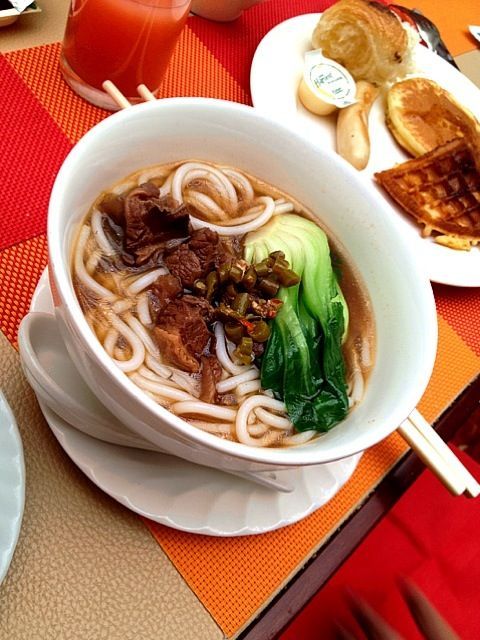

豆浆油条 - Soy milk and deep-fried dough sticks (dòujiāng yóutiáo) I have tried the dough sticks, and I have tried soya milk but separately so far. The dough sticks are these long deep-friend dough sticks, reminding me slightly of breadsticks but more lighter and chewier.
茶鸡蛋 - Tea eggs (chájīdàn) I adore these, my canteen serves them along with regular eggs for breakfast and the tea eggs are usually the first to go. They actually don't really involve tea, instead these eggs are cooked in a mixture of chinese five-spice powder (pepper, cloves, cinnamon, star anise and fennel seeds), soy sauce, and black tea leaves, although some recipes leave out the tea leaves. They have a relatively strong smell so I usually grab some for breakfast on the weekends or in the canteen at lunch if there are any leftover after breakfast. They are also quite cheap, one egg is around 2 yuan so around 0.30 euro, making them a pretty filling and affordable breakfast food.


If there are any other common or specific breakfast foods that you know of, do share them please as I love trying out new things!
So we got our class schedules today and it turns out that I'm in the same class as I was last semester, probably because I requested to stay in the same level in the survey that was sent out without actually thinking everything through.
To be fair, this survey was before I got my exam results back and honestly I think did pretty well for someone who was initially placed 2 levels below because I didn't do too great on my placement test (although I evidently redeemed myself on my swap out test).
This upcoming week we're allowed to try out other levels before either staying or doing the swap test to go to a higher level, which I might do if the next level is manageable.
I feel like the main issue is that despite being really out of my depth in the beginning, this level ended up being challenging enough, but what if the next level is too difficult and this level is too easy? I don't want to waste this semester, but I also want to thrive rather than try to survive and constantly be stressed out about studying.
I guess the upcoming week shall reveal its secrets so there's not that much sense in obsessing over it. I for one will try to make the most of the remaining days before classes start.
Have a good weekend everyone!
The V for Ü trick
I only recently discovered that you can type in v to get the letter ü when typing in the pinyin for chinese characters.

Life in China Observations #4
It's been a while since I last did this, so let's go again!
Identity is complicated The question "where are you from" can be just as complicated as it is simple. For many people, their country of birth is where they're from, which is usually the case here. However, if you happen to be born in country A to parents from cultures B and C, immigrated and became a citizen of country D and now attend university in country E and are now on an exchange program in China, the question "where are you from" is not that easily answered. From what some of my friends told me, where you're from is actually the place where your dad was born in even though you may have been born in a different city which is a pretty interesting concept known as the "ancestral home" - 祖籍 (zǔjí) or 籍贯 (jígùan).
You have to make the first step I may have mentioned this in a previous post, but people are constantly doing something and unless you specifically and intentionally reach out and work on your friendship, you may end up drifting apart. Maybe this is a specific thing, but back home I could go a few weeks without really reaching out to my friends and then someone would suggest grabbing lunch together and it would be like no time had passed at all since we last saw each other. Here? Quite different.
Beauty and pop trends There are all sorts of weird and wonderful trends that you can come across in China. From using bread as a study tactic to decorating your workplace with banana plants, I feel like the more I assimilate here, the bigger the reverse culture shock will be when I go back home, and not just for me. dr.candiselin covers some of these trends on Instagram (not a promo post!), and I recommend checking out her content, it's quite brilliant.
Taobao You can buy anything on taobao. Literally. I saw someone selling a house there. I was previously a little shocked to see animals such as cats and bunnies being sold, but after seeing houses and cars being sold I honestly don't know what else is there to surprise me with.
Prepare in advance (foodwise) for the lunar new year During those 8-12ish days during the holdiays a lot of stores were closed. The convenience store outside my campus was open thank God, because otherwise I would have been living on instant porridge and instant soup which was my main food source 2 weeks prior due to being ill and there is only so much instant oatmeal that you can eat before slightly losing it.
Being ill is a nightmare And I mean the mandatory-bed-rest-no-going-out-for-at-least-5-days ill kind. You need to go to the hospital or a clinic to get a note to give to your school otherwise the day's you're absent will be counted, and once they reach a specific percentage you won't be allowed to take the exam (which can seriously mess with your grades, even more if you're there as an exchange student).
The weather can change at the blink of an eye I remember back in December the weather was in the negative digits and then suddenly the next day it was around 20 celcius?? The very next day it went to 3-4, and even now in March it's very all over the place. The weather forecast is not that useful because I'll leave the dorms wearing my coat in the morning only to return carrying my coat, jumper, long-sleeved shirt and wearing only my t-shirt.
More affordable beauty products I saw some products go for around $80 online?? And here on Taobao they cost under $10? I'm assuming it's the shipping costs that drive up the price so drastically, and now I'm pondering whether it would be cheaper to order online or to travel to China every couple of years just to stock up on beauty products.
Chinese chopstick etiquette


There are certain rules for using knives and forks, so why wouldn't there be rules for chopsticks? Now that I know how to use chopsticks properly and (hopefully) without offending anyone, here are some main rules.
No playing with chopsticks In other words, using them like drumsticks and swordfighting with your table neighbour is not permissible (at least not in public).
No sticking your chopsticks up vertically into your bowl Shrines to deceased people usually have a bowl of rice or sand with 2 incense sticks sticking upwards, which is why sticking your chopsticks into your bowl can have similar unpleasant associations.
No pointing your chopsticks at people Pointing your chopsticks at someone is also a no go, as it's seen as hostile.
No digging around You should take from the top layer and avoid digging around the plate in search of the food.
No eating directly from the main plates You should first place the piece of food that you took onto your own plate, and then eat it, instead of eating straight from the source.
No tapping against the bowl Tapping against your plate is considered to be impolite and should be avoided when possible.
Life in China #11
The downside of short holidays and festivals in China (Qingming, Labour Day etc.) is that you usually need to make up for them, so since I got Thursday and Friday off, I still had class on Sunday.
The 然's
突然,虽然,忽然. and the other 然's can often get mixed up, so here's a quick explanation of some of the most common ones!
突然 (Túrán): This means suddenly or unexpectedly
居然 (Jūrán): This kind of means suddenly, but more in the sense of "surprisingly" or to suggest disbelief at something that happened.
忽然 (Hūrán): This also means suddenly or unexpectedly, but it has a more stronger connotation.
既然 (Jìrán): This is a conjunction meaning "since" or "now that"
既然the weather is great, let's go out!
既然 you aren't busy, let's go watch a movie.
不然 (Bùrán): This means "otherwise" or "or else";
You should study, 不然 you won't do well on the exam.
虽然 (Suīrán): This means although or even though.
虽然 I'm not good at singing, I still like to go to the karaoke.
当然 (Dāngrán): 当然 means certainly or definitely and can be used as a reply:
Can you help me with A? 当然!
自然 (Zìrán): This can mean nature or naturally.
China's 自然 is very beautiful.
She speaks Chinese 得很自然.
仍然 (Réngrán): This can mean "still" or "yet".
I仍然 haven't read that book.
依然 (Yīrán): Similar to 仍然, this also means still" or "yet" but it's usually used in more formal and literary works, whereas 仍然 is more often used in spoken language.
果然 (Guǒrán): 果然 can be used to mean "indeed" or "as expected"
This movie is 果然 interesting.
竟然 (Jìngrán): This is an adverb used to suggest surprise or something unexpected.
He竟然forgot her birthday.
显然 (Xiǎnrán): This means "clearly" or "obviously".
This soup 显然 hot.
偶然 (Ǒurán): This means "accidentally" or "by chance".
We 偶然 met at the same cafe.
How many other 然's do you know about? Drop a comment!
豫园 (Yùyuán Gardens)




Class shenanigans #6
Or in other words how I could have failed my speaking exam.
My speaking teacher decided to create a separate groupchat for our speaking class so that the material wouldn't get all mixed up, and she sent me a request to add her on wechat, so that she could add me to the groupchat. I added her back, but she didn't add me to the chat so I thought she'd add me later and forgot about this matter.
But as it turns out she didn't, and now less than a week away from the exam I started worrying because most of the information such as the exam time, content etc. was being shared exclusively in the chat so after class I asked her about this issue.
Turns out she thought I didn't add her back (I did) because she didn't recognize my username (my actual non-chinese name), and my profile picture, which was of this cheeky smirking cat 😭
It ended up being resolved, with me joining the groupchat but it's just a tad hysterical that all this was because of my profile picture.
Moral of the story: If you don't use your actual picture and insist on having smirking cats as your profile pics, use a name that everyone else can recognize.
Yangs (扬) vs Changs (场) vs Tangs (汤)
These can get confusing, so here are some of the most common words that use this radical 昜 explained.
场 (chǎng)
A measure word for sports or leisure activities e.g. 一场足球比赛
A large place such as an open space, a field or a venue e.g. 会场 (a conference hall)
畅 (chàng)
An adjective meaning smooth or at ease or free from worry
A surname
玚 (cháng)
An old word (rarely used nowadays) meaning jade used in sacrificial ceremonies.
肠 (cháng)
Intestines or sausages
汤 (tāng)
Soup
Hot or boiling water
A surname
杨 (yáng)
A willow but it's more close to it's scientific name poplar in meaning
A surname
扬 (yáng)
To raise something e.g. 扬手
To toss or throw something up
A surname
炀 (yáng)
A literary term for smelting or melting something
旸 (yáng)
Sunshine or a rising sun
飏 (yáng)
To soar, fly or float
疡 (yáng)
A medical term for sores or an ulcer
钖 (yáng)
An ornament on a horse's head stall (oddly specific)